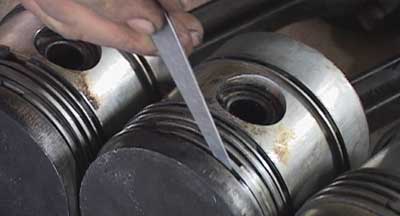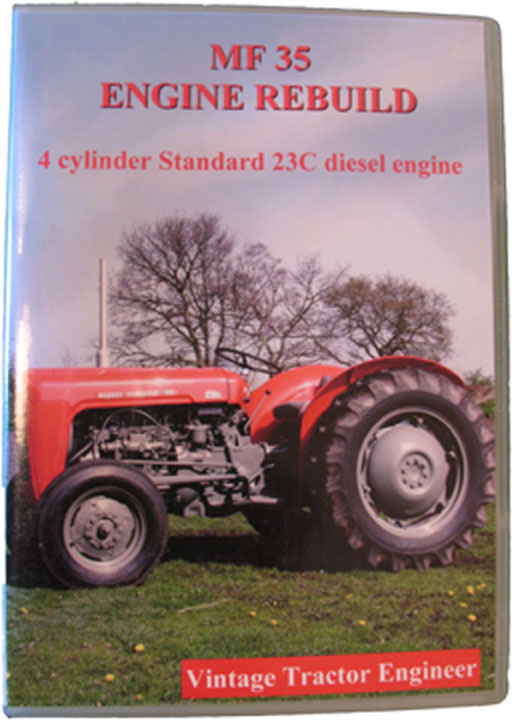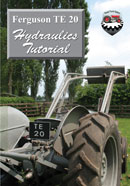Want to check out our tractor maintenance videos? Click here to see what we've got!
The cold and damp weather associated with winter is bad news for tractors; but there are several things we can do reduce the effects of the inclement weather. Which of the tasks you choose to do will depend on how often you intend to use your tractor. All of the following will apply if the machine will be parked for the whole of the season, whereas you must choose which procedures are most appropriate if giving occasional or regular use.
General
Firstly check the fluid levels in the battery. If they are low then de-ionised water should be added, but bear in mind that it is sensible to give the tractor some use and let the electrical system re-charge the battery after water has been added. If the battery must be left on an unused machine for several weeks, then disconnect the earth lead to prevent parasitic loads which can promote sulphation.
It is not good for the battery if it’s charge is depleted, particularly in cold weather. This will not happen if the engine is regularly started and run. During long term storage it is recommended to remove the battery, preferably keeping it out of extremes in temperature (not in the house and away from naked flames) and fully charged. Solar tricle chargers are particularly useful for this situation and work well even in the sun starved winter months. A regulator fitted between the solar charger and the battery will prevent overcharging – charge can be checked with a hydrometer.
Measure the density of the coolant fluid with a hydrometer to make sure that there is sufficient antifreeze in the system. Drain and renew with a fresh antifreeze mixtue if necessary.
Oil and grease are particularly damaging to rubber and so must be cleaned off gear lever gaiters, hoses, tyres, steering joint gaiters and any other rubber parts. This will prevent the rubber degrading and becoming brittle.
Park in a condensation free garage. Some heat would be nice, but this is a luxury few of us have available to us and so a little ventilation is probably the next best thing.
Jack up and place the tractor on stands to take the weight off the tyres. This reduces the speed at which the rubber perishes and can prevent cracks occuring at certain points within the tyre. Once off the ground make sure that the hand brake is off to prevent it from seizing on.
Diesels
As the cold weather approaches remember to order diesel fuel with winter additive added. If you are not using sufficient fuel from your bulk tank for a new order, then you can buy the anti-waxing additive in small quantities to add yourself.
Keep the tractor fuel tank full of fuel to reduce the surface area of metal within the tank. This reduces the total area where condensation can (and will) form and so minimises water contamination of the fuel. Even the most fastidious of owners cannot keep all moisture out of the fuel system (e.g. condensation will also form in your bulk tank) and so it is good practice to turn off the fuel tap, remove the glass sediment bowl, empty the fuel and any trapped water from the bowl, refill with fuel and then bleed off the system.
Petrols
Even in winter time the light fractions of petrol will evaporate, leaving the heavier fractions behind. This residue manifests itself as a sticky gum which clogs the tiny carburetter jets and valves, and even the fuel lines can eventually become choked or at least greatly reduced in size. If the tractor is stood for any length of time we would suggest draining the whole system of fuel. As a minimum we would advocate turning the fuel tap off and draining the carburetter (most carbs are fitted with a drain). If there is no drain fitted to your carburetter then turn off the fuel tap and run the engine until it is out of fuel.
Even regularly used petrol engines can succumb to problems in moist air conditions, with the distributor cap often becoming soaked in moisture. This causes electrical shorting and problems with sparking. The only sollution is thorough drying of the distributor and possibly also the plugs wires, maybee aided with moisture expeller spray. Obviously a dry, insulated and (in an ideal world) heated garage can reduce these problems.






[…] In the UK we’ve had two consecutive cold winters and the frost has blown core plugs from some engines which haven’t either been drained of coolant or had sufficient antifreeze concentrations. Owners who have had blown core plugs are lucky that this fail-safe has worked – they could have been dealing with a more serious (and expensive) cracked block. This highlights the need to prepare your tractor for winter. […]